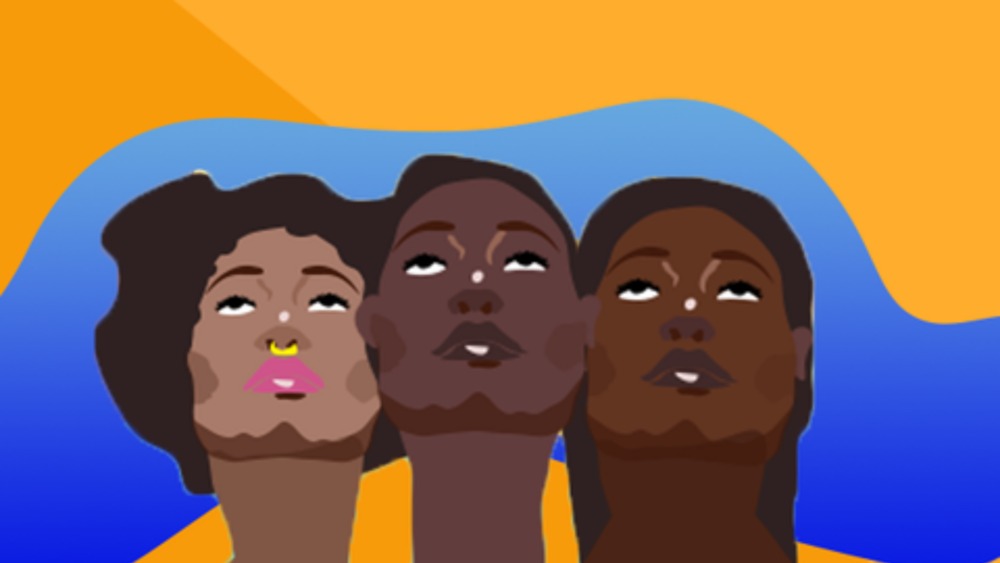The Constitution of the Republic of South Africa is heralded as one of the most progressive legal documents in the world. It recognises and protects the rights of the LGBTIQ+ community by prohibiting unfair discrimination based on sexual orientation and gender. A number of landmark legal cases have also set important precedents including National Coalition, Fourie, and Du Toit. These cases established the decriminalisation of consensual same-sex intimacy, the right for same-sex couples to marry and the right for same-sex couples to jointly adopt children. Yet despite the existence of this legislation and constitutional protections afforded to the LGBTIQ+ community, homophobic hate crimes prevail.
A google search using the words “South African lesbians” will reveal the horrific headlines of the multitudes of black lesbians being killed in South African townships. Not only does this perpetuate negative stereotypes it also elevates a singular narrative of violence being performed by men who perform the labour of upholding heterosexism and patriarchy. This article seeks to go beyond these stereotypes and undo one of the many silences suffered by black lesbian womxn. It looks at the experience of black lesbian women affected by intimate partner violence and unpacks the structural limitations that hinder their access to help.
Intimate Partner Violence in same sex relationships is harder to discuss and negotiate in a society that is patriarchal and heterosexist. The dangerous myth of homosexuality being unAfrican not only stigmatises the LGBTIQ+ society but also has an elevated effect on the lives of black womxn in this country. Aggression against black lesbian womxn is informed not only by religion but also by cultural practices that place a burden on black womxn to behave a certain way. This includes respectability politics that are anchored in beliefs that womxn should not be sexually liberated but should aspire to reproduce within heterosexual marriage. Lesbian womxn upend those beliefs by undermining heteronormativity and, in some instances, existing in a manner that is deemed to be threatening to masculinity, the “nuclear family” and, by extension, to society.
The history of the criminalisation of queer bodies lingers in police stations and courtrooms across this country, making it easier for law enforcement officers to treat queer victims as criminals not worthy of justice. Reporting a hate rape or assault on a lesbian womxn by a man has historically not resulted in any justice for the victim and the community. An apt example of that miscarriage of justice was the case of Eudy Simelane. The judge refused to acknowledge Eudy’s sexual orientation as the motive for her murder and rape. In another case, Zoliswa Nkonyane, a lesbian womxn from Cape Town was raped and killed for her sexual orientation.
The case was reportedly postponed over 50 times and activists took to closely watching the progression of the case due to the mistrust of the court system. After 6 years, the case concluded with 5 of the initial 9 men standing trial, being sentenced to 16 years in prison.
In such a context, it becomes even more difficult for lesbian women to report instances of intimate partner violence to the police. The stories of the two womxn discussed below illustrates this (please note that all the names are pseudonyms)
Noma was involved in a relationship in which she was feminine representing while her partner, Thando, was “butch.” Their relationship mirrored the power dynamics of many heterosexual relationships, with the butch partner asserting power through dominance and aggression, while Noma was expected to be docile and submissive. Noma was involved with her partner for two years, with her partner depending on her for financial support. Finances were the catalyst of their disagreements which eventually led to Noma suffering physical beatings and later, sexual assault. Noma did not consider the police as a possible source of relief and told the nurses that assisted her that she was assaulted by a boyfriend in order to not “out” herself. When asked why she did not report her partner to the police, Noma said she was afraid for her partner’s safety once arrested as she feared the police harming Thando because of her sexual orientation. She also stated that the LGBTIQ+ community needs to be protected from further stigma and stereotypes.
Lerato was involved in a relationship that mirrored the identities and dynamics of Noma and Thando. However, Lerato only experienced violence from her partner, Linda, when Linda was inebriated, after which she showed remorse. As Lerato and Linda lived in an apartment complex, the neighbours overheard one of the fights and called the police to resolve the dispute. The police de-escalated the situation and said to Lerato that “family matters should be resolved as such” while regarding the matter with little seriousness. Lerato did not press charges.
In their article, researchers Sanger and Lynch argue that intimate partner violence in female same-sex relationships is not regarded as serious beacuse two womxn are viewed as equals. They also find that the silence around same-sex intimate partner violence is facilitated by the need to protect the LGBTIQ+ community by not further stigmatising it. Another factor which bars many queer womxn from seeking help is the threat of being “outed” to their families.
Although gender-based violence is an epidemic in South Africa, queer black womxn and black lesbians have a unique experience as a result of the intersections of patriarchy, heterosexism, homophobia and racism. Their social marginalisation and isolation makes it difficult to access support. The dominant focus of policymakers and researchers on intimate partner violence in heterosexual relationships and the portrayal of womxn as inherently non-violent effectively silence black lesbian womxn.
Noma and Lerato’s experiences illustrate the multiple barriers faced by black lesbians when trying to seek support from abuse they suffered in same-sex relationships. The attitudes of the police and health care givers still reflect those of a society which is fundamentally heterosexist and homophobic. The work of activists should also alleviate the erasure by bringing issues of same-sex intimate partner violence to the fore when there is discourse on gender based violence in South Africa. Campaigns aimed at addressing GBV and IPV should not perpetuate a heteronormative narrative but rather explore the various manner in which IPV manifests in queer relationships.
Author’s note: The stories mentioned here were sourced during my work in an NGO space that is predominantly lesbian and womxn saturated, I contacted a network of womxn who would be interested in sourcing participants for the purpose of this article. I found two participants who were willing to share their stories with me under pseudonyms as confidentiality was the only reason they would partake in the study. The interview was conducted with the utmost confidentiality telephonically. The participants were aware what the purpose of the article was and thus committed to the interview to better educate queer persons about what abuse looks like because such topics are not mainstreamed into GBV campaigns. I have since checked in on their wellbeing
Written by Lethabo Mailula


Recent Comments